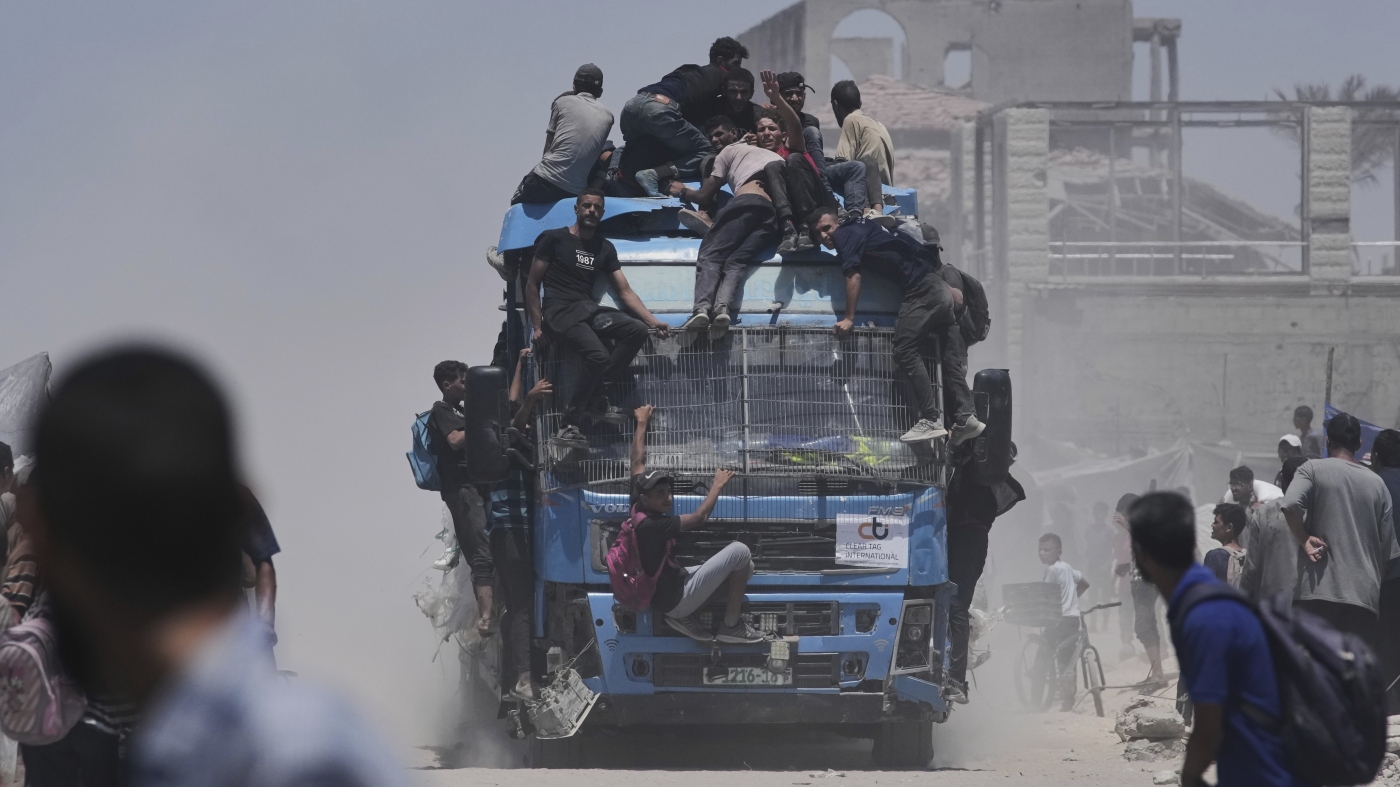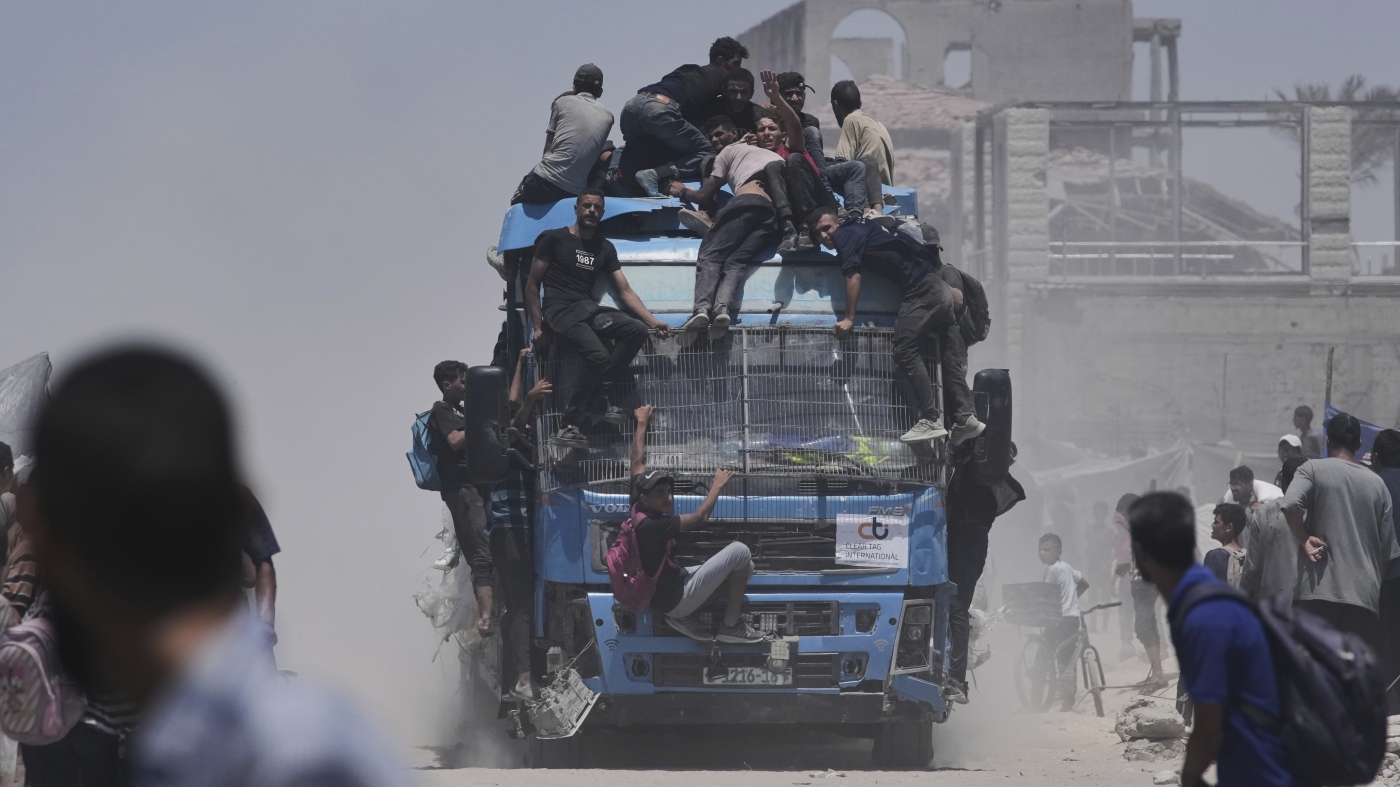The Humanitarian Crisis in Gaza: A Deep Dive into the Killing of Aid Seekers
Introduction: A Crisis of Desperation
The conflict in Gaza has reached a critical juncture, marked by a humanitarian crisis that has claimed the lives of over 1,000 Palestinians since May. These individuals were not combatants but civilians, desperate for food and essential supplies. The United Nations has documented a disturbing pattern of killings near aid distribution sites, raising serious questions about the protection of civilians and the adherence to international humanitarian law. This report delves into the complexities of the situation, examining the root causes, the legal implications, and the urgent need for accountability and action.
The Humanitarian Catastrophe in Gaza
A Region Under Siege
Gaza, a densely populated strip of land, has long been under blockade, severely restricting the movement of people and goods. The ongoing conflict has exacerbated this pre-existing vulnerability, disrupting supply chains, destroying infrastructure, and displacing hundreds of thousands of people. The result is a dire humanitarian situation characterized by widespread food insecurity, a collapsing healthcare system, and a desperate struggle for survival.
The Desperate Scramble for Aid
Reports of starvation and malnutrition are rampant, especially among children. Aid organizations have struggled to deliver sufficient assistance due to ongoing fighting, border closures, and logistical challenges. The situation has created a desperate scramble for food, making vulnerable civilians even more susceptible to harm. The killing of aid seekers is not just a tragic consequence of the conflict but a symptom of a broader failure to protect civilians and ensure their access to basic necessities.
The UN’s Findings: A Disturbing Pattern
High Casualty Figures
The UN human rights office has documented a disturbing pattern of Israeli forces killing Palestinians as they attempt to access aid. The sheer number of aid seekers killed—over 1,000 since May—is deeply alarming and demands immediate attention. These incidents have occurred near aid distribution sites, including those operated by the Gaza Humanitarian Foundation, an American contractor.
Proximity to Aid Sites
The fact that many of these killings occurred near aid distribution points suggests a potential failure to distinguish between civilians and combatants. This raises serious questions about the rules of engagement, the protection of civilians, and the proportionality of force. The circumstances surrounding these killings are complex and require thorough investigation to establish the facts and determine the truth.
Lack of Accountability
There is a pressing need for thorough and impartial investigations into these incidents to determine whether international humanitarian law has been violated and to hold those responsible to account. The lack of accountability undermines the rule of law and perpetuates a cycle of violence and impunity.
Contested Narratives and Conflicting Accounts
Diverging Perspectives
While the UN has presented compelling evidence of the killings, the Israeli military has offered differing accounts. In some cases, they have claimed that their forces were responding to threats or attacks. In other instances, they have attributed the deaths to stampedes or other accidental causes. These conflicting narratives underscore the need for independent investigations to establish the facts and determine the truth.
The Complexities of Conflict Zones
It is essential to acknowledge the complexities of operating in a conflict zone. Maintaining order and security at aid distribution sites can be challenging, and there is a risk of infiltration by armed groups. However, the use of lethal force must always be proportionate and discriminate, with utmost care taken to avoid harming civilians. The killing of aid seekers raises serious concerns about the adherence to these principles.
The Legal and Ethical Implications
International Humanitarian Law
The killing of aid seekers raises serious legal and ethical questions under international humanitarian law. This body of law, also known as the law of armed conflict, seeks to minimize human suffering in times of war. Key principles include the distinction between civilians and combatants, the proportionality of force, and the precautionary measures to avoid or minimize harm to civilians.
War Crimes and Accountability
The intentional targeting of civilians is a war crime. Even if civilians are not directly targeted, the use of indiscriminate or disproportionate force that results in civilian casualties may also constitute a violation of international law. The killing of aid seekers in Gaza underscores the urgent need for accountability and the protection of civilians in armed conflict.
The Role of the International Community
Demanding Accountability
The international community has a responsibility to protect civilians in armed conflict and to ensure that international humanitarian law is respected. This responsibility includes calling for thorough and impartial investigations into alleged violations of international law and holding those responsible to account.
Providing Humanitarian Assistance
Ensuring that humanitarian aid reaches those in need, without obstruction or interference, is crucial. The international community must support aid organizations in their efforts to deliver assistance and protect civilians.
Diplomatic Pressure
Exerting diplomatic pressure on all parties to the conflict to adhere to international law and to protect civilians is essential. The international community must use its influence to promote a peaceful resolution of the conflict and prevent further humanitarian crises.
Supporting the UN
Strengthening the capacity of the UN and other international organizations to monitor and respond to human rights violations in conflict zones is vital. The international community must provide the necessary resources and support to enable these organizations to carry out their mandate effectively.
The Way Forward: Towards Protection and Accountability
Strengthening Protection Measures
Implementing concrete measures to protect civilians at aid distribution sites is crucial. This includes establishing clear security protocols, providing adequate crowd control, and ensuring that aid is distributed in a safe and orderly manner.
Independent Investigations
Conducting thorough and impartial investigations into all allegations of violations of international humanitarian law is essential. These investigations must aim to identify those responsible and hold them to account.
Promoting Accountability
Supporting the work of international justice mechanisms, such as the International Criminal Court, to ensure that those who commit war crimes are brought to justice is vital. The international community must provide the necessary support and cooperation to enable these mechanisms to carry out their mandate effectively.
Addressing the Root Causes
Working to address the underlying causes of the conflict, including the long-standing political grievances and the humanitarian crisis in Gaza, is crucial. A comprehensive approach that addresses the root causes of the conflict is essential to prevent future tragedies and build a more just and peaceful future for all.
A Call for Humanity
Remembering the Human Cost
It is easy to get lost in statistics and lose sight of the human stories behind them. Each of the 1,000+ aid seekers killed in Gaza was an individual with a family, a dream, and a right to life. They were mothers, fathers, sons, and daughters who were simply trying to feed themselves and their loved ones. Their deaths are a profound loss, not only for their families but for all of humanity.
Honoring Their Memory
We must remember their stories and honor their memory by working to prevent such tragedies from happening again. Their deaths cannot be in vain. The international community must act decisively to protect civilians, demand accountability, and work towards a lasting resolution of the conflict. Only then can we hope to prevent future tragedies and build a more just and peaceful future for all.








